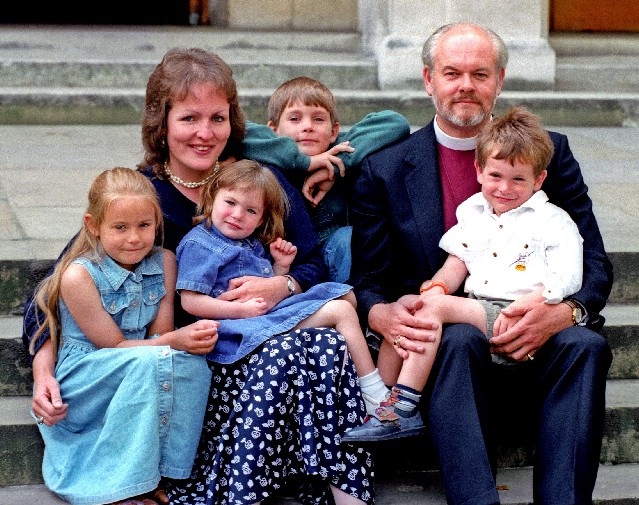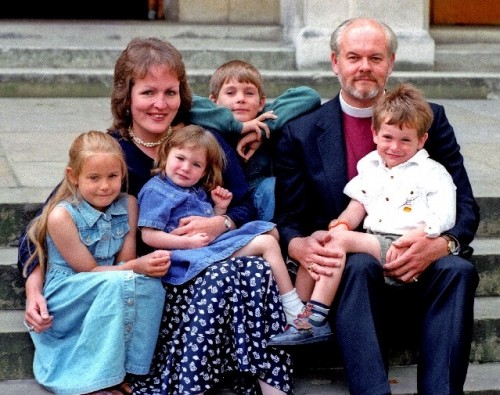Here and there – more and more frequently – the media is opening its airways to the voices of those imploring for the abolition of priestly celibacy. It would raise the number of candidates for priesthood, they say. As a married man, they would better understand the problems of family life. Would they? Does a doctor need to have the flu in order prescribe its vaccine? And the scandals concerning sexual molestation would be reduced, they prophesy. Would they really?
Perhaps this issue becomes clear when you take a closer look at the situation of married laymen who dedicate themselves more deeply to evangelization. I am acquainted with a large number of them. With rare exception, the wife is always resentful of her husband’s dedication to Godly things and to the church. And it is not difficult to understand why. After all, we marry in the “illusion of possession”: my husband, my wife, my children.
Suddenly, in the middle of the road, the husband heeds the call to evangelize and becomes a catechist, a preacher, and a lecturer. This absorbs and enthralls him and is very time consuming. Soon the wife feels as being in second place, in the back seat, not to mention a certain jealousy felt towards the attention that the “public” (not necessarily female) gives her husband preacher. She suffers to have to share him with the community. I wonder what today’s virtual woman would say to that Italian high priest who, 90 years old, in Tocantinópolis, Tocantins, heroically drives his VW bug through the muddy roads of rural communities…
It’s no wonder that such wives begin to say things to the minister layman like: “Why don’t you wear a cassock with that? When I married you, I thought you were “normal! Why don’t you take a mattress with you to the sacristy?” Or worse: “If you’re going on another trip, you can just stay there this time.” I personally know several laymen who have gone through this ordeal, and many of them eventually abandoned their ministry, which was good both for his church and people.
Now, imagine, readers, if the priest was married! It is precisely the high priest who not only preaches, but hears annual confessions, keeps other women’s secrets (including from that voluptuous blond who the priest’s wife wouldn’t put up with even if painted gold!) The priest who attends calls in the middle of the night and gives priority to the necessities of his flock… If priests must marry, it will be necessary to open seminars for the fathers’ saintly women. And be sure to put “saint” on that! An “ordinary” wife would not withstand the scourge.
Yes, I know, someone reading this is retorting: “But that’s how it is with doctors too. And with protestant priests as well, and they still marry”. Well, I would like to add: that’s also how it is with performing artists who, on stage, receive idolatry adoration and applauses by fans (an abbreviation for fanatics). It’s no wonder that, according to a study carried out in the United States to determine the divorce rate caused by “professional reasons”, of which the result pointed to the three practices that most frequently break the marital bond: 1º artists, 2º doctors, and 3º… protestant priests!!!
It is not easy to be married to a “public” man, whose door everyone knocks on – including the delicate, perfumed ones. He is a human male, fragile and fallible, digested by his community; hounded by every thinkable kind of human necessity and lacking. The way I see it, it is not our current society of production and consumption that will produce this legion of women saints capable of bearing the weight of their husbands’ priestly ministry. Which brings us a new problem: if the priests are allowed to marry, for how many times?
The maronite priests? Ah yes… In Lebanon, married men are ordained priests in the Catholic Maronite Church. But the reader doesn’t quite think of them as “one of us”. They have ordinary professions (cobblers, stone masons, merchants…) and are dedicated full-time to their profession. On Sundays, they commemorate a liturgy with the people. And that’s all. They are not sought out during the week: they are working men and family men. Please forget the counter-argument.
Where I grew up, when we were kids and went around in our little clicks from one place to another, there was always someone who ran off yelling: “Last one there marries the priest!”
And we all took off at full speed, because no one wanted to be the priest’s wife…
Related Articles


















